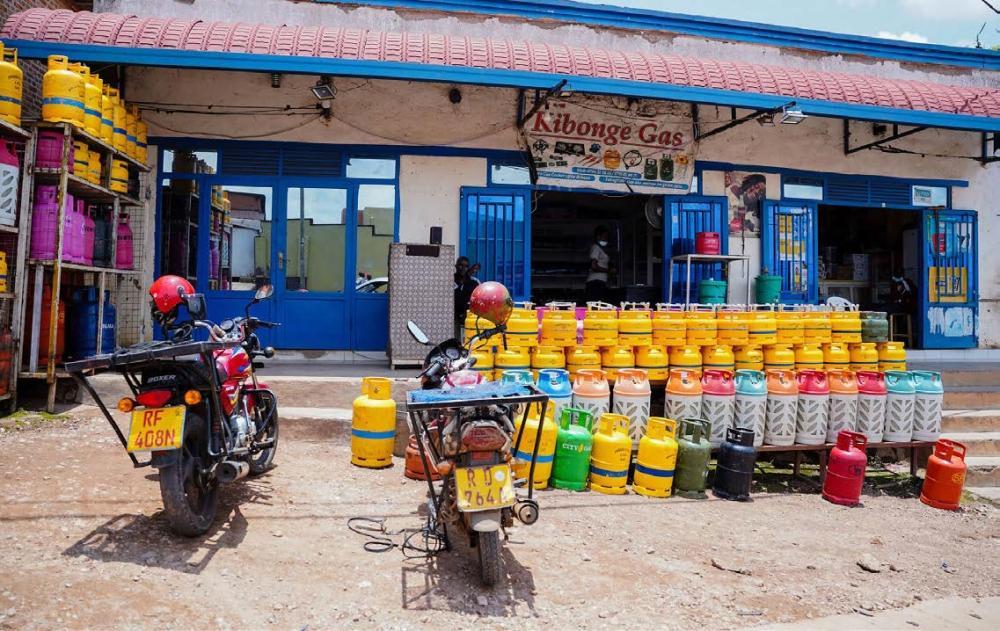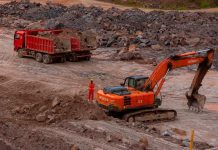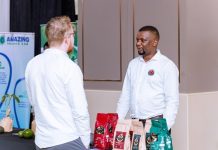Africa-Press – Rwanda. The government is piloting a pay-as-you-cook model that allows households to purchase cooking gas in small, affordable amounts, in an effort to rapidly increase the use of clean cooking fuels across the country, Infrastructure Minister Jimmy Gasore has said.
Gasore made the observation during a senatorial plenary session on measures to expand access to environmentally friendly cooking energy. Environment Minister Bernadette Arakwiye also attended, representing – along with Gasore – Prime Minister Justin Nsengiyumva. This followed senators’ assessment of the government’s efforts to improve citizens’ access to clean cooking energy.
Senators expressed concern that Rwanda has fallen behind its clean cooking targets.
Nyirahabimana Soline, the Senate Vice President in charge of Parliamentary Affairs, said that the country aimed to reduce reliance on firewood and charcoal from 83 per cent in 2017 to 42 per cent by 2024, but the 2024 Integrated Household Living Conditions Survey shows that biomass use has instead risen to 93.8 per cent.
The Senate sought clarity on how Rwanda plans to reverse this trend and reach the 2030 target of lowering biomass reliance to 42 per cent.
Gasore said the heavy use of firewood and charcoal threatens forests, public health, and household welfare. Some families struggle even to afford firewood and resort to unsafe materials to prepare food. He stated that finding sustainable cooking solutions is a national priority.
He highlighted the pay-as-you-cook (PAYG LPG) initiative—piloted with support from Saudi Arabia and the private energy company Bboxx—as a transformative way to make gas accessible to low-income households.
Under normal LPG purchasing systems, a household must pay upfront for a full cylinder refill, which costs at least Rwf10,000 for a six-kilogramme cylinder, which Gasore said is the smallest so far.
This upfront cost puts LPG out of reach for many low-income earners. The pay-as-you-cook model eliminates that barrier by allowing users to buy gas in small amounts, depending on the money they have.
“With this system, a household with only Rwf1,000 or Rwf2,000—the amount they would typically spend on charcoal or firewood—can buy gas through mobile money and use it immediately at home,” Gasore said.
He pointed out that this directly targets households that were previously unable to adopt LPG because of the large minimum purchase requirement.
The pilot will distribute 50,000 affordable LPG cooking kits over 18 months in Kigali, Musanze, Muhanga, Rwamagana, and Huye. Each household receives a two-burner stove, a 12-kilogramme cylinder, and a smart Cylinder Locking Valve that enables pay-as-you-go functionality.
The smart valve monitors usage and allows consumers to top up credit through mobile money, similar to prepaid electricity.
Gasore said that if the pilot proves effective, the government will scale it up nationally and use its role as a catalyst to encourage more private sector investment in pay-as-you-cook systems. This, he noted, could significantly accelerate the country’s shift to clean cooking.
Complementary efforts are underway to expand clean cooking access. Large-scale LPG storage facilities, led by Société Pétrolière (SP), are under construction and expected to be operational by July 2026, with a total capacity of 9,000 tonnes.
This is intended to stabilise supply and reduce price fluctuations.
A partnership with Gasmeth aims to convert Lake Kivu methane into compressed natural gas for household and industrial use, including replacing firewood in tea factories. It is expected to start being used by 2027.
The government has also subsidised improved cookstoves, with more than 510,000 households benefiting since 2021, Gasore said.
According to the National Institute of Statistics of Rwanda (NISR), about 5.4 per cent of Rwanda’s households use gas for cooking.
For More News And Analysis About Rwanda Follow Africa-Press






